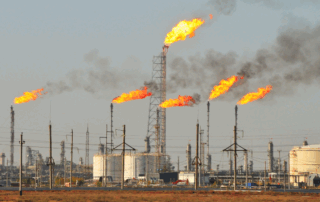Electricity Costs Are Spiking: Here’s How Large Energy Consumers Are Responding
Electricity prices are rising faster than many large energy consumers have ever experienced, driven by structural changes in power and capacity markets. For organizations with significant electricity spend, the challenge is no longer just securing a competitive rate, but managing long-term price risk and budget uncertainty. This guide explains how large energy buyers are responding with structured hedging strategies to control costs, reduce price exposure, and stabilize energy budgets.
Natural Gas Futures And Speculation In Energy Markets
Natural gas futures are pivotal in commercial energy retail pricing, particularly in deregulated markets where suppliers offer various fixed-price options. Understanding how speculative trading, hedging, and overall market outlook drive these futures markets is essential for energy buyers to manage cost risk and time supply contracts effectively.
The Role of Natural Gas In Supporting Decentralized Grids
As decentralized grids and microgrid technologies continue to grow, natural gas is playing an increasingly critical role in supporting energy reliability and independence. By complementing intermittent renewable resources like wind and solar, natural gas generation helps stabilize decentralized systems. In this article, we’ll explore how both conventional and renewable natural gas (RNG) are shaping the future of distributed energy networks.
Energy Arbitrage In Electricity Trading: Strategies, Opportunities, and Risks
Energy arbitrage is reshaping how participants approach electricity trading by leveraging price differences across time and location. Whether you're a sophisticated trader or a commercial energy buyer, understanding these strategies can help you better navigate market volatility and unlock potential savings.
LNG: The Role Of Liquified Natural Gas In The U.S. Energy Economy
As global demand for liquefied natural gas (LNG) rises, the United States has emerged as a key player in reshaping the global energy market. Understanding LNG’s growing role in domestic supply, pricing, and infrastructure is critical for businesses navigating today’s evolving energy landscape.
A Consumer’s Shopping Guide To Seasonal Energy Pricing
Seasonal patterns play a major role in shaping electricity and natural gas prices for commercial energy buyers. Understanding how these patterns affect rates and when to lock in a deal can lead to major cost savings and more predictable energy budgets.





